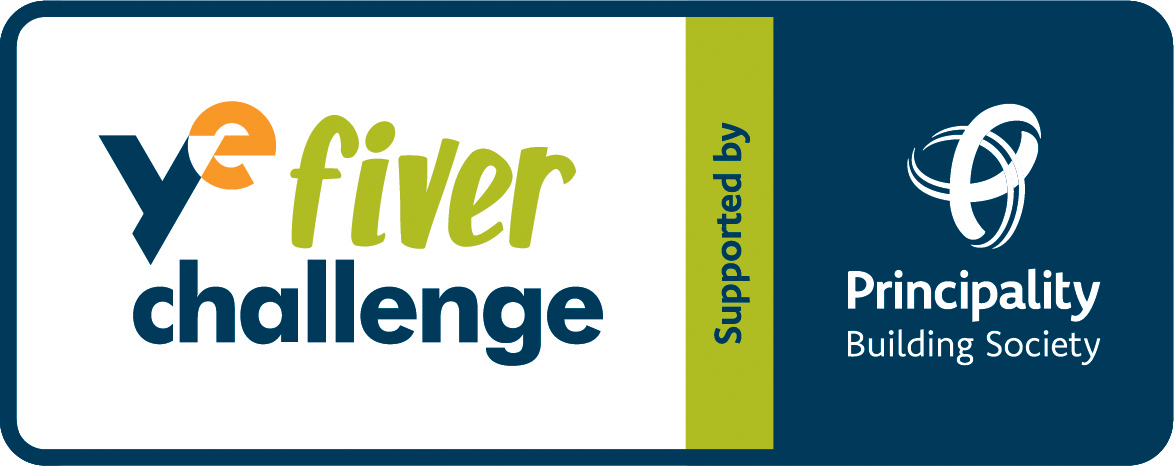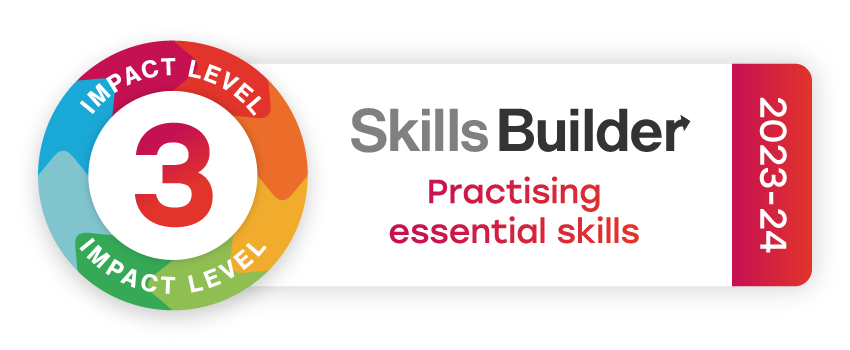How the Fiver Challenge supports the National Curriculum for England
Engaging with the Fiver Challenge
The Fiver Challenge is a free national enterprise programme providing young people aged 5-11 with a highly interactive and fun way of developing core enterprise and financial education skills, including problem solving, confidence, creativity and teamwork
Fiver activities are run by primary schools and led by the teacher using the resources available on the Fiver platform.
Fiver is a great opportunity to support your pupils to develop, use and apply a range of skills and knowledge in a real-life context including:
- Learning about enterprise and money management
- Key mathematical skills, including problem solving
- Financial capability skills they can apply to their personal and working lives
- Communication skills that will improve their confidence and self esteem
- Creative and practical skills, including digital skills
- The ability to build relationships with a wide range of peers and other adults
Fiver enables teachers to deliver in key curriculum areas but also fits with many other bespoke programmes which schools use in the delivery of PSHE.
More broadly, we believe that the Fiver Challenge’s contributions to pupil’s development are:
1. Providing a foundation for pupils to develop key skills for learning, life and work e.g., ability to listen to peers and compromise, work in a team and understand team members skills and roles, adaptability, creativity, and how to manage money and develop solutions to problems.
2. Allowing for equality across all abilities for pupils to raise their aspirations and develop positive attitudes to work from an early age.
3. Understanding the importance of community through engagement and the concept of social entrepreneurship by developing a service or product that helps the local or wider community.
4. Providing inspiration to teachers in how to apply enterprise and finance education by providing a more sustainable learning approach to pupils.
5. Fiver may also act as a ‘springboard’ by providing a platform for subsequent learning after the challenge has ended.1
More ways in which Fiver helps deliver the new requirements in England
The role of enterprise education in the development of your pupils
Fiver seeks to develop enterprise and financial capability while enhancing economic and business understanding.
The aim of enterprise education is to support young people to develop a wide variety of skills such as leadership and entrepreneurship, teamwork, communication, and decision-making; transferrable skills that provide the key to the development of confident, financially capable and enterprising young people. Financial education is equally as relevant when developing enterprising mindsets.
Young people need a financial education that helps them develop the knowledge, skills and attitudes required to manage their money, make informed financial decisions and achieve their goals. By learning about money from an early age, they have the potential to transform their lives by opening up opportunities that may not have been considered. 2
Research has shown that teaching children about enterprise and financial education from a young age allows pupils to build a strong foundation for further learning. 3 4
Young Enterprise knows that it is critically important to engage with primary-age children during those formative years when they are developing their mindsets around money, enterprise, and potential career pathways. We feel that giving them the opportunity to ignite their enterprising spark through programmes such as Fiver will increase awareness of potential career paths and give them the confidence and knowledge to make better-informed decisions about their future. 2
Community Engagement
Pupils are encouraged to engage with their school and local community throughout Fiver by developing a product/service that could help their school and/or local communities. This supports them to develop new employability and financial skills through a practical learning opportunity.
Through community engagement, Fiver provides an additional opportunity to learn about social entrepreneurship and the positive impact they can have on others in their community as well as the wider environment.
Fiver provides real-world learning contexts and possibilities that enable numerous aspects of the taught curriculum to be included for relevant curriculum learning.
Relevance of the Fiver Challenge to the National Curriculum
PSHE education
The PSHE Association is clear that schools should teach economic wellbeing and careers, and there are many learning opportunities within the PSHE core theme 'Living in the Wider World'.
'PSHE complements the financial education covered through Citizenship and Maths but covers the personal aspects of economic wellbeing. It also lays the foundations of effective careers education, digital and media literacy (it is vital that the foundations of this learning are laid during the primary phase).' 4
They go on to say that:
'PSHE education is the glue that binds them together. PSHE gathers all these aspects of preparing for modern life together into a coherent curriculum subject. It is the crucial early learning in primary years that raises aspirations and broadens understanding of the world of work.' 5
Learning opportunities laid out in the PSHE programme of study provide numerous opportunities to increase the financial and enterprise capability of young people at an early stage. These will not only benefit them in their personal lives but in their working life going forward, whatever shape that employment takes.6 The programme of study outlines that, pupils will learn:
| KS 1 Economic wellbeing: Money |
| L10. what money is; forms that money comes in; that money comes from different sources |
| L11. that people make different choices about how to save and spend money |
| L12. about the difference between needs and wants; that sometimes people may not always be able to have the things they want |
| L13. that money needs to be looked after; and the different ways of doing this |
| KS 1 Economic wellbeing: Aspirations work and career |
| L14. that everyone has different strengths |
| L15. that jobs help people to earn money to pay for things |
| L16. different jobs that people they know or people who work in the community do |
| L17. about some of the strengths and interests someone might need to do different jobs |
| KS 2 Economic wellbeing: Money |
| L17. about the different ways to pay for things and the choices people have about this |
| L18. to recognise that people have different attitudes towards saving and spending money; what influences people’s decisions; what makes something ‘good value for money’ |
| L19. that people’s spending decisions can affect others and the environment (e.g., Fair trade, buying single-use plastics, or giving to charity) |
| L20. to recognise that people make spending decisions based on priorities, needs and wants |
| L21. different ways to keep track of money |
| L24. to identify the ways that money can impact on people’s feelings and emotions |
| KS 2 Economic wellbeing: Aspirations work and career |
| L25. to recognise positive things about themselves and their achievements; set goals to help achieve personal outcomes |
| L26. that there is a broad range of different jobs/careers that people can have; that people often have more than one career/type of job during their life |
| L27. about stereotypes in the workplace and that a person’s career aspirations should not be limited by them |
| L28. about what might influence people’s decisions about a job or career (e.g., personal interests and values, family connections to certain trades or businesses, strengths and qualities, ways in which stereotypical assumptions can deter people from aspiring to certain jobs) |
| L29. that some jobs are paid more than others and money is one factor which may influence a person’s job or career choice; that people may choose to do voluntary work which is unpaid |
| L30. about some of the skills that will help them in their future careers e.g., teamwork, communication and negotiation |
| L31. to identify the kind of job that they might like to do when they are older |
| L32. to recognise a variety of routes into careers (e.g., college, apprenticeship, university) |
Mathematics
There are clear opportunities to use and apply mathematical skills e.g., through thinking about production costs, budget planning and calculating profit margins.
Table 1: Mathematics Programme of Study Requirements 6
| Pupil Age | Mathematics programme of study requirements |
| 7 - 8 yrs. | "Add and subtract amounts of money to give change, using both pounds and pence in practical contexts." |
| 8 - 9 yrs. | "Solve simple measure and money problems involving fractions and decimals to two decimal places; and estimate, compare and calculate different measures, including money in pounds and pence." |
| 9 - 11 yrs. | "Solve problems involving measure [for example, length, mass volume, money] using decimal notation, including scaling." |
English
National curriculum requirements for English require students from year 1 - 6 to develop their spoken language skills as this underpins reading and writing.
Through Fiver, students can apply the skills learnt in the classroom via enterprise education e.g., developing ideas, marketing skills and use of persuasive language particularly during the sales pitch competition.
Table 2 outlines some of the English Programme of Study requirements which are reinforced through participation in Fiver.
Table 2: English Programme of Study Requirements Years 1-6 7
| English programme of study requirements |
| "Listen and respond appropriately to adults and their peers" |
| "Use spoken language to develop understanding through speculating, hypothesising, imagining and exploring ideas" |
| "Participate in discussions, presentations, performances, role play/improvisations and debates" |
| "Gain, maintain and monitor the interest of the listener(s)" |
Other cross curricular opportunities
The learning gained from Fiver, is not exclusive to Mathematics and PSHE.
Table 3 below is just one example of how children may use existing skills or develop new skills.
Table 3: Art, Computing, Design and Technology KS1 8
| By the end of each key stage, pupils are expected to know, apply and understand the matters, skills and processes specified in the relevant programme of study. Young people may use or develop: |
| "Artistic skills in their marketing and advertising" |
| "Digital skills in the presentation of business pitches or the design of company logos" |
| "Design and technology skills through the products they choose to make and sell" |
| "Work in a range of relevant contexts [for example, the home and school, the local community, industry and the wider environment]" |
References:
- 1. Young Enterprise Fiver Challenge Evaluation report 2018
- 2. Enterprising Mindsets summary report: 'Make it real and make it mean something'
- 3. Lord Young (2014) Enterprise for All Report
- 4. APPG (2016) All Party Parliamentary Group on Financial Education for Children report: Financial Education in Schools: Two Years On - Job Done?
- 5. PSHE Association, PSHE Education Programme of Study (Key Stages 1 to 5), 2020 Statutory changes explained - PSHE Association website.
- 6. Department for Education, National Curriculum in England: mathematics programme of study, 2014
- 7. Department for Education, National Curriculum in England: English programmes of study: key stages 1 and 2, 2014
- 8. Department for Education, National Curriculum in England: Primary Curriculum, 2013

